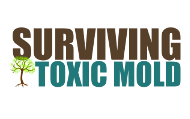Disclaimer
Legal Information Is Not Legal Advice
This site provides information about the law designed to help users safely cope with their own legal needs as it may pertain to mold. But legal information is not the same as legal advice -- the application of law to an individual's specific circumstances. Although we go to great lengths to make sure our information is accurate and useful, we recommend you consult a lawyer as we are not giving legal advice.
|
Law and Toxic Mold
 Fighting legal battles that involve toxic mold are VERY complex and difficult if not impossible. Fighting legal battles that involve toxic mold are VERY complex and difficult if not impossible.
Less than 1% of all people who attempt to sue a lanlord for toxic mold even get accepted by a lawyer and only 50% of those 1% of people actually win any money from a lawsuit. If you just happen to be one of those lucky .5% of people and have ALL the right information and evidence it CAN win you a settlement but it is super rare.
Below are just "some" of the qualifications to win a rare toxic mold case.
Statutes of Limitations - (Has your window of opportunity to file a case expired?)
Toxic Mold Tort
Toxic tort cases may involve claims of injuries arising months or years after the date of alleged mold exposure. A recent Appellate Division Third Department decision addressed the application of the toxic tort statute of limitations in latent exposure cases.
Under CPLR § 214-c(2), the plaintiff in a personal injury action for damages must commence an action within a three-year statute of limitations. Unlike the normal three-year statute of limitations for personal injuries, which runs from date of injury, the CPLR § 214-c(2) time period begins to run from (a) the "date of discovery of the injury" by plaintiff, or (b) the date the injury should have been discovered by plaintiff through the exercise of reasonable diligence, whichever is earlier.
Mold in a rental home or apartment
Suing a landlord for health impairment: There are some things you need to know
Unfortunately the truth is even if you have a significant health impairment caused by mold, you’ll need to meet ALL of the criteria below in order for any law firm to consider your case as a possible case worth taking on:
-
Legal proof that the address of the property you entered into a legal lease contract with and rented to you is owned and managed by a "CORPORATION" with a net worth of 3 million dollars "MINIMUM".
Truth: Lawyers will not sue individuals, family members, small businesses, small business owners (unfortunately most landlords fall into this category). Mold legal cases are very expensive and take sometimes months to years to resolve. If lawyers do not see enough "assets" to grab to reimburse themselves, their team and the overhead costs...they will NOT take your case.
-
3rd party damage: If the damage was not caused directly by your landlord, unfortunately you will be asked to sue the landlord. Most legal cases cannot "skip" over responsible parties in order to reach another responsible party. Because your lease is a legal contract that means that the landlord, rental management company or owner of that home is the responsible party even though a 3rd party may have caused the damage. It would then be up to the landlord to file an additional law suit to sue the 3rd party. (Most landlords are not willing to get involved).
If you do not have proof of #1.....there is a 99% chance there will be NO case against a landlord. (if you have this evidence.....you may move forward with the steps below)
-
To prove that there was mold in your home when you got sick. Find a mold testing company here: Mold testing companies
-
Pictures of evidence of the mold (BEFORE YOU MOVE OUT). See our Gallery for examples of mold photos taken by mold victims.
-
Pictures or SOLID PROOF of negligence on the part of the landlord.
-
Proof that you notified the landlord of a mold or water problem immediately as well as proof and hard core evidence that YOU were not the cause of the mold problem.
-
Proof that the landlord did not respond or address and fix the situation
-
Also optional is proof that IF the landlord did respond or try to address and fix the situation: Did he/she address or try to fix the situation in an unprofessional way which was environmentally UNSAFE.
-
Significant medical evidence that you DID NOT have any other similar illnesses prior to living in the apartment or house. WARNING: The defendant and defendant's lawyers WILL look up your past medical history as well as everything about your past to see if you may have been exposed somewhere else. They will try to make a strong argument that you did to get thier client out of paying.
Medical evidence that the same molds that are found in the MOLD TEST done on your home match the Mycotoxin testing or Bio Marker testing done on your body.
Medical evidence: (Both toxicological, pathological, medical, biological) that PROVE that the exact symptoms you are having are directly related to the Mycotoxins that were found in your urine sample above.
-
You'll need complete documentation of loss: These are just suggestions
-
Proven Time off a job for illness
-
Pay Stubs leading up to your exposure time
-
Medical proof from your doctor that your loss of work was due to illness.
-
Pictures of the items in the home lost
-
Receipts of items if you have them
-
Proof of Lease
-
Finally you'll need a TOXIC TORT Lawyer to sue your landlord or other responsible party. In that event, the lawyer will ask if you have the above evidence as part of the "discovery" phase of the lawsuit -- that period of time when each side gets to ask for and examine the other side's facts.
Mold in a house you own
Before you can sue a responsible party or claim on your insurance policy
-
please search Google here: https://www.google.com/#q=mold+exclusion+in+insurance+policies for how most insurance companies are excluding mold claims from their renters and home owners insurance policies.
-
Read your renters insurance or home owners insurance policies on mold before proceeding. Or call your insurance provider if you are not sure. (honestly, they will not want to help you but at least you will know before wasting your time)
Mold in a school
Coming Soon
More facts you need to know
1. If whomever owns your property does not have a "business asset worth" of over 3-5 million dollars. No lawyer will usually take on the case.
2. It costs approximately $500,000 to prove illnesses are connected to toxic mold exposure (and that means all the right evidence is actually proven). Only the top experts are required to be hired and some of them charge upwards of $50,000 or more (each expert).
3. Lawyers want 40%-50% of the winnings PLUS the $500,000 so they need to sue for over $1,000,000 or more just to re-coop their costs as well as make a profit for their firm. (Remember, they are in business to make money and not to give you justice).
4. It has to be a toxic tort lawyer that has previous mold winnings or the case is almost always dead.
5. There has to be something like brain damage, lung failure or death for any toxic tort lawyer to take on a case. Why? Because as we stated above suing for over $1,000,000 is standard and no judge will award a million dollars for someone who lost their stuff as well as has some life long symptoms. They must be REALLY BAD.
6. Toxic Mold litigation is draining and you (the victim, or the victim's advocate) must have to have the physical energy to travel around for about 3-5 years before a case is even settled.
7. Toxic mold cases are very very very rare unless a person who was hurt is very wealthy and will lose millions of dollars because of what happened or the company that caused it has an extreme net worth of 3-5 million dollars or more.
8. A person is better off having a mold test, taking pictures and NOT bringing up sickness in small court. Small claims only awards you up to $10,000 of ruined possessions and does not award anything for sickness. Hiring a lawyer for this is useless because the lawyer will take all of your $10,000 for their fee frown emoticon
|

 Fighting legal battles that involve toxic mold are VERY complex and difficult if not impossible.
Fighting legal battles that involve toxic mold are VERY complex and difficult if not impossible.



